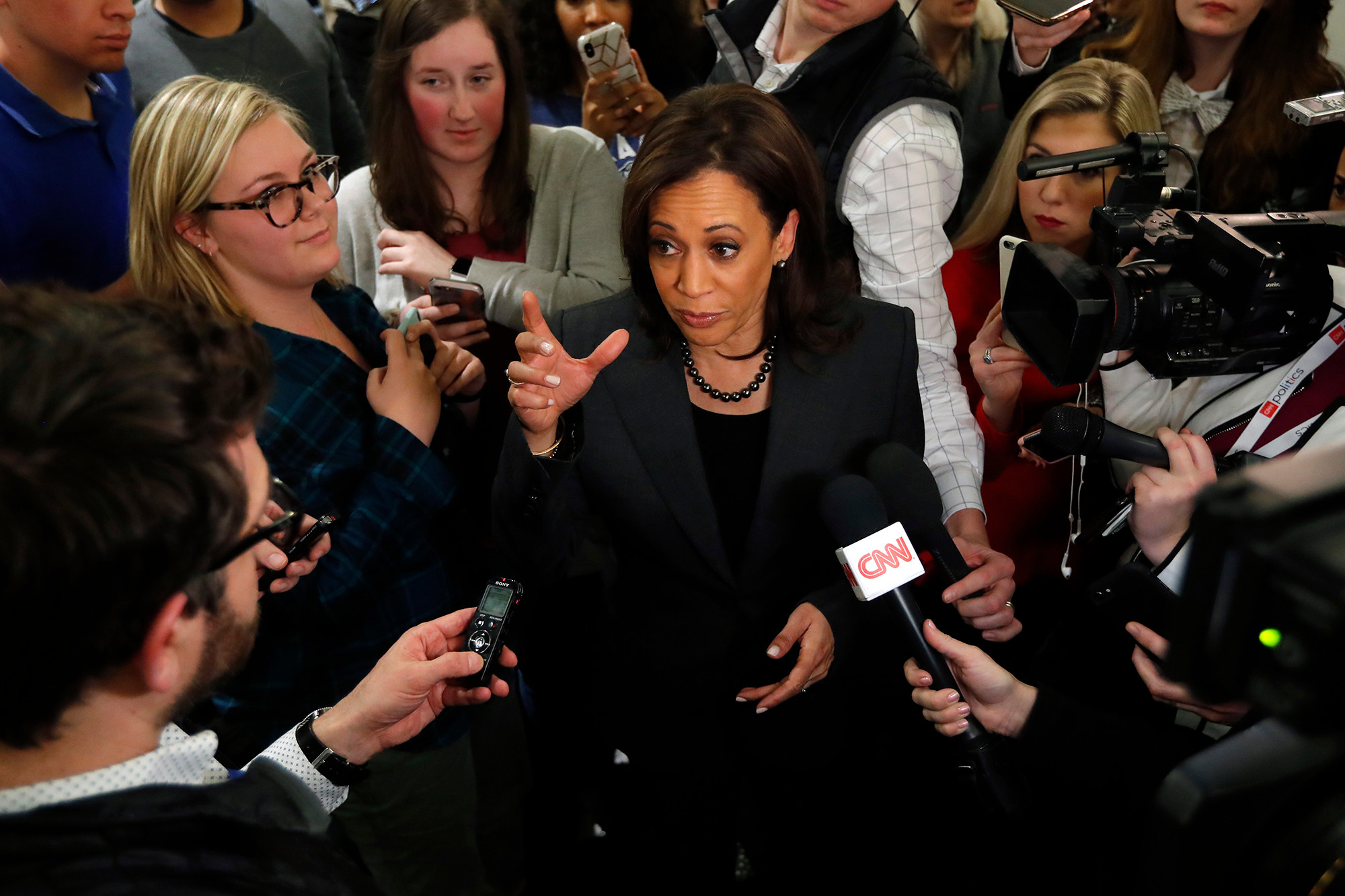We haven’t reported much on Sen. Kamala Harris, of California, since her attack on former vice president Joe Biden at the first Democratic debate back in late June. Since that time, her poll numbers jumped measurably, then proceeded on a downward freefall pushing Harris into the single-digits with a collecting sense of dread about her candidacy.
As NBC News reports, Harris’ poll numbers are terrible right now no matter which way you slice them, and her campaign is at a crossroads in terms of strategy for the next several months. Does she stick with small, high-dollar fundraising events as she has for several weeks, or does she shift gears and get back on the campaign trail and continue presenting her case to voters:
With just over four months left until Iowa’s leadoff caucuses, Harris has fallen to 5 percent support in the latest NBC/WSJ poll released Tuesday, putting her in fifth place behind former Vice President Joe Biden, Massachusetts Sen. Elizabeth Warren, Vermont Sen. Bernie Sanders and Pete Buttigieg, the mayor of South Bend, Indiana.
Her second debate performance, in July, was panned as she defended her record as a prosecutor and worked to explain her position on health care reform. She did little to bounce in the third debate this month, casting much of her attention toward President Donald Trump.
And she’s had a light campaign schedule this summer.
The story goes on to note that it’s been two months since Harris set foot in South Carolina, a state which was originally part of her plan to combat Joe Biden’s support from African-American voters in the Democratic primary. Her original attacks on Biden’s record with regard to racial issues were intended to separate him from voters and put doubts in the minds of black supporters. So far, the attack failed, perhaps even backfired as Harris has continued to decline steadily.
According to Politico, Harris is launching an all-out assault on Iowa and putting all her chips in the Hawkeye State where she believes she’ll need to finish in the top three to have a chance at New Hampshire or South Carolina:
The re-engagement in Iowa — where the California senator held a 17-stop bus tour in August but hasn’t returned since — is part of a broader acknowledgment inside the campaign that she hasn’t been in the early states enough. It’s designed to refocus her campaign and clarify her narrowing path to the nomination.
Harris has been backsliding since her summer confrontation with Joe Biden, dropping so far in recent surveys that her once-promising campaign appears in danger of becoming an afterthought.
A half-dozen Harris officials and outside allies briefed on internal expectations said she needs a top-tier finish in Iowa to remain competitive and put her in position to strike in Nevada, South Carolina and on Super Tuesday, when her home state of California holds its primary.
This change can less be defined as a “re-engagement” and more accurately defined as an “acknowledgment” of the reality Harris is facing right now. If she wants to maintain a standing – any standing – in the minds of early state voters, she has to get her name and face in front of them again. She’s been off the campaign trail doing fundraisers and hasn’t grabbed any headline attention.
To make matters worse, with regard to her African-American voter pitch, a story in the Washington Post is now asking whether Kamala Harris is “black enough.”
Kamala Harris wanted to go to a black school. That’s what black folks called Howard University in the early 1980s when Harris was a teenager considering her future.
As Harris campaigns for the Democratic presidential nomination, Howard is central to the 54-year-old senator’s personal narrative and her political identity. To those who see her white husband, question her time in California as a prosecutor in a criminal justice system that disproportionately punishes people of color and wonder about her empathy for black men, Howard is her rejoinder. It’s her knowing nod to black voters, her character witness for anyone who would say that her personal heritage is disconnected from the story of African Americans and this country’s lineage of slavery.
“When people challenge her blackness, I always say, ‘If she went to Howard, it means she’s one of us,’ ” says Howard grad and Philadelphia Inquirer columnist Jenice Armstrong. “She comes from there. No one should challenge her blackness.”
Despite the headline, the story is actually quite glowing about Harris’ time at Howard University and how it has become a staple of her campaign rhetoric.
Harris has her work cut out for her over the next several months, as does every Democratic candidate. In her case, she has to redefine her campaign and reinvite voters to consider her candidacy again. She may be permanently damaged by her attacks on Biden, but she’s not entirely out of contention. At least, not quite yet.
Donate Now to Support Election Central
- Help defend independent journalism
- Directly support this website and our efforts
